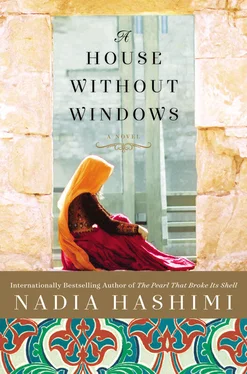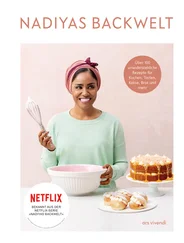Was Sultana taking notes? There was a faint crackle on the line. He listened for the sound of her breathing.
“Did you do all your schooling in the United States?”
“I did,” Yusuf answered.
“What made you want to be a lawyer?”
“I have an unquenchable need to be right at all times,” Yusuf joked. He heard Sultana laugh lightly.
“And you? Did you study journalism abroad?”
“No, I graduated from Kabul University.”
“Really?” Yusuf was surprised. He’d half expected Sultana to be like him, an expat who had returned to the homeland with a foreign education. He wondered why he’d made that assumption. Maybe it was her forwardness or the way she asked questions that didn’t skirt the topic.
“Yes, really,” she said sharply. She’d detected his surprise and was unimpressed by it. She switched into English to make her point. “We do have an educational system here, you know. You don’t have to go to the United States to learn something.”
“I didn’t mean that. Tell me, then, why did you become a journalist?”
“Because I like to know the truth,” she replied without hesitation. “I have always asked a lot of questions, even when I was a child. My family tolerated it so well that I decided to make it my work.”
“Good thinking.”
“Thank you,” she said brightly. “I’m planning on going to the prison later this afternoon to do a few more interviews. I’m hoping to catch the warden as well. She’s been pretending to be busy, but I’m going to corner her today. Any chance you’ll be there?”
“I’m at the office this morning.” And he was, but as the words left his mouth, Yusuf felt a tug to change his plans. “I’ll probably be at the prison in the afternoon though.”
“Great, I’ll be there at two o’clock. Maybe I’ll see you then.”
Yusuf hung up the phone and tapped his pencil against his notepad. The afternoon was looking less dreary than the morning.
ZEBA STOOD AT THE EDGE OF THE FENCE AND WATCHED HER mother approach, just as she had months ago. She’d last seen Gulnaz at the shrine when she’d turned to look back at Zeba before entering the mullah’s quarters. Zeba thought back to her shouts, the warning cries she’d sent out to her mother from across the shrine’s open yard. But Gulnaz had never been in any danger. Mullah Habibullah had never intended to hurt her — not when they lived together, not when he left, and not when they sat together to discuss the fate of their imprisoned daughter.
The rain had cooled the air but made a mess of the yard. Zeba’s sandals were wet and the bottoms of her pantaloons had wicked the water from the earth. They could not sit for today’s visit or the mud would cake their clothes. That suited Zeba fine. This was a conversation she wanted to stand for anyway.
Gulnaz met her daughter’s eyes even from a distance, but she did not speak until she reached the thin fence that separated them. She looked at the slick beneath her feet and shook her head. Their feet sank into the ground, weighted by mud and the discoveries of the recent days.
“ Salaam, Madar,” Zeba said softly.
“ Wa-alaikum, janem. Your color is better.” Gulnaz’s eyes flew over Zeba’s shoulder, scanning the yard for any of her cellmates. She felt compelled to ask about them, as if she needed polite conversation to fill the space of time she was going to spend with her own daughter. “The others aren’t outside today.”
“They do what they can to stay out of this filth.”
Zeba felt her throat knot. Ever since she’d been a small girl, she’d looked up to her mother. Even when she felt that her mother was vengeful with her jadu, she’d believed her to be someone larger than life and invincible. That’s what made it acceptable to push her away. Her mother was not frail or needy. She was an island of autonomy even when the world around her was at war. Zeba did not push her mother down — she had merely walked away from her.
But this was a different Gulnaz. Before her stood a simple woman, made of flesh and scars and regrets. She was a story with an arc that fell suddenly and tragically when it should have lifted. Zeba did what she could to banish the pity from her eyes. That was not what she wished for her mother. It was cruelty to have a light shine so brightly on the one lie she had built her life upon, the one fallacy that allowed her to carry on each day and walk with her head held high. Zeba hated that she knew the truth about her father, that he had simply walked out on her because he couldn’t stand to be around her mother. That her father was not a wretched man or an insane man or a dead soldier only made matters worse. He was alive and well, a decent person who’d made a drastic decision — choosing to walk away from everything he had and every person he’d ever loved simply to get as far away from Gulnaz as possible. He’d left her with as much dignity as he could until their paths were forced together once again.
Zeba could see the lines on her mother’s face and wondered how she’d never noticed them before. The green of her eyes didn’t sparkle. Was it because they sat beneath a sky of hammered metal or because they had lost their luster years ago and Zeba hadn’t noticed? The bend of her spine, her shrunken lips, the slight tremble in her hands — all were tiny revelations for Zeba.
“Madar,” she started. Why did it have to be like this? Why were she and her mother like two survivors floating on rafts, reaching out for each other only to be bounced apart by wave after tumultuous wave? Would they ever reach still waters?
“Now you know,” Gulnaz said, her moist eyes half hidden by heavy eyelids. “Now you know everything. And I’m glad you do. It surprises me to say it but it’s true. I hid it from you because you were a girl. You couldn’t have known what a husband was.” Gulnaz stared off into the distance. She spoke softly, a thin attempt at lightening the heaviness in the air. “But I don’t have to tell you now, do I? You know better than most, jan-e-madar, that some husbands are quite burdensome creatures.”
“They are, aren’t they?” Zeba laughed, bringing a trace of a smile to her mother’s face. Zeba went on, “I always dreamed of trekking across the country, climbing the mountains and finding some green flag somewhere or a pile of stones and being struck with this knowledge that somehow I’d stumbled upon my father’s grave. I imagined him a martyr, a hero who had spilled his blood for freedom.”
“It was a different kind of freedom he was after. He was no martyr, neither was I.”
“I suppose not.”
“I knew he would speak to you,” Gulnaz said. “I begged him that day not to say anything, but I could tell from the look on his face that he wouldn’t be able to hold his tongue for more than a few moments once I left.”
“How could he? I would have hated him for it.”
Gulnaz looked up sharply.
“You wouldn’t have known to hate him for it. He could have simply left things alone.”
Zeba shook her head.
“That’s not the way it should be. I needed to know.”
“Did you? Has it made anything better? Has it restored anything in you? I bet it hasn’t.”
Zeba wouldn’t answer that question. Her mother looked pained enough.
“Have you told Rafi?”
Gulnaz nodded.
“I had to. No sense in waiting for him to hear it from you or, worse, from your father.”
“Father” fell from her tongue like a drop of poison. Zeba saw just how much her mother despised her husband and knew resentment was at its root. Gulnaz had wanted him to be something better and he’d disappointed her.
“What did Rafi say?”
Читать дальше











